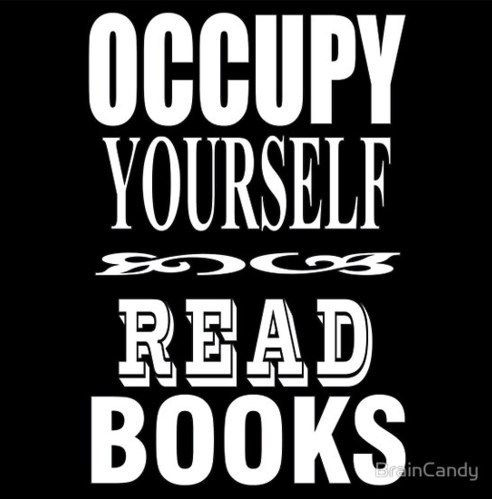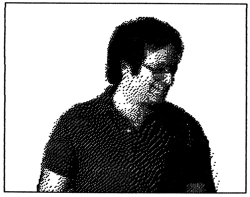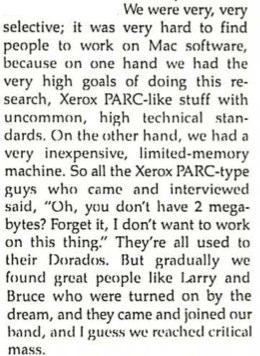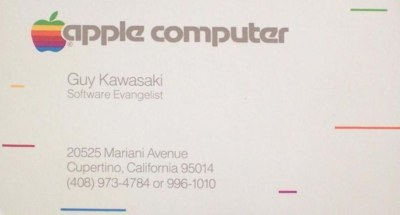I read, therefore I am.
I am a huge reader. I’m terrible on movies. But, on the other hand, I’m pretty good on economics books. My favorite subject to read in for fun, is biography. Specifically, the biographies of scientists. The following list, however, is not a list of my favorite books. Instead, it is a list for my MBA students. They ask me for suggestions about what they should be reading, what will help them the most directly in their careers. So this list is tailored to people who work in business and want to have a general business career.
| Author | Title/Link | Why? |
| W. Brian Arthur | The Nature of Technology: What It Is and How It Evolves | Don’t get this unless you are a geek. But, … if you are a geek, this is the analytical under-pinning of how economies evolve. I’ve listened to it (audible) twice so far. Great book. |
| Steve Blank | The Four Steps to the Epiphany | Having worked in high tech new product development since 1982, I’ve been searching for books that help companies with new to the world technologies, carve new markets from the stone of existing markets. The three best books I’ve found for stuff that is new are Moore’s CROSSING THE CHASM, Kawasaki’s SELLING THE DREAM and this book by Steve Blank. The key ideas in the book are: first, separating the business model from the business plan, second “customer development” and third pivoting. Actually only the seeds of pivoting are in this book, Blank’s thinking on pivoting have developed considerably since the book was published. |
| Steve Blank | The Secret History of Silicon Valley Blog Series 23 postings | Steve Blank keynoted a CIA VC Fund event in 2009, and covered the unknown background behind Silicon Valley’s rise. Sensing radio waves to 3 gigighertz in B17s over Germany, vacuum tube valley, Fred Terman’s development of radar and subsequent development of Stanford’s engineering school via CIA, military and NSA funding. There is an unpleasant shock for the Austrian economists (like me) who oppose government funding of technology. Blank got into electronic counter measures while serving in Viet Nam (he walked away from a scholarship at Michigan State) and along the way he was exposed to nuclear technology, and then startups. Blanks blog is the most consistently useful blog that I read. In fact, I turned off the RSS feed of the blog because there is so much great information coming from Blank, that I can’t keep up with it. Highly recommended! |
| Jim Collins | Good to Great: Why Some Companies Make the Leap… and Others Don’t | I was late in reading this book. The bottom line is first you build your team, and then, you decide what business you want to start. Same as the process in FOUNDERS AT WORK (see Livingston below). |
| Tom Demarco | Peopleware: Productive Projects and Teams (Second Edition) | Best book I’ve ever read on managing knowledge workers. Has chapters on chemistry of teams, teamicide, and the pathology of the furniture police that try to turn every employee into a uniform plastic person. If you are a programmer, you’ll read it in one sitting. |
| Emanuel Derman | My Life as a Quant: Reflections on Physics and Finance | Just for fun. I love reading biographies of scientists. Derman is a physicist that emigrated from science to wall street. |
| Peter F. Drucker | Innovation and Entrepreneurship | A cornerstone of business thought. Drucker was a free thinker that most management and marketing thinkers have drifted away from. But his insights are timeless, common-sense, and cut through the pathological professionalism that is often found in business schools and bureaucratic companies. If you could read only one book to get the most important marketing stuff from business school, this would be the book. |
| Christopher R. Edgar | Inner Productivity: A Mindful Path to Efficiency and Enjoyment in Your Work | This is what has been useful to me post Getting Things Done. Helps you get into your own minds and articulate the things holding you back. Recommended by Surj Patel. Thank you Surj! |
| Richard N. Foster | Innovation: The Attacker’s Advantage | Geek book. Great for understanding how a technology changes over its life cycle (i.e., technology S-curves). |
| Paul Hawken | Growing a Business | This is a great book if you are thinking of starting a business. I gave 2 copies to MBA students of mine in 1991 and they both read it, quit their jobs, and started businesses. The big take-away is “I can do this!” |
| Philipp K. Janert | Data Analysis with Open Source Tools | Statistics, databases, and spreadsheets are on a collision course to create a new discipline of very opportunistic quantitative analysis. This book is a stepping stone towards a definitive text. It focuses on the “Why do this?” as the cornerstone of getting a good numerical answer. The mathematical techniques Janert uses are too narrow for most business applications I’ve come across, but the counsel to avoid statistics at all costs, and the philosophy of quantitative problem solving are easily worth the price of the book. |
| Guy Kawasaki | The Art of the Start: The Time-Tested, Battle-Hardened Guide for Anyone Starting Anything | Great startup book. Aimed at companies in Silicon Valley who want to start in a garage and then get funded by venture capital. Chapter 3 on presentations is the most practical guide to presenting I’ve ever seen. The 10/20/30 rule can be applied in almost every presentation! |
| Guy Kawasaki |
|
This book is about causes. Teaching many engineers over the years, a little-known fact that I’ve discovered is that engineers secretly have causes. Secret causes of engineers are perhaps the most potent source of new companies on planet Earth. The first time I loaned this book to a product manager who was working for me, he took the book home at 5:00 pm and he returned it the next morning, read, at 9:00 am. He stayed up all night and devoured the book in one sitting. When he returned it he said: “If I had read this book, my first startup would not have failed.” If you want to make meaning in this world, this book is a recipe manual for how. Google is great, Google is powerful, but search does the work. Thus has been the conventional wisdom about Google until G+. Now, going back in history a bit, no a BYTE, a personage rears his humble head:
Andy Hertzfeld (original inventor of the term “Hertz” :-) circa 1984 Source: BYTE Magazine February, 1984 Andy Hertzfeld worked on the original Macintosh team like (Ahem, certain other authors that shall remain nameless) and he reveled in being an underdog: Source: ibid And he saw the miracle of drinking Steve Job’s Kool Aid and the effectiveness in Kool Aid attracting other polymaths like Larry Tesler and Bruce Horn:
Source: ibid. So this humble polymath who invented “Hertz” did not die in the process of making Macintosh and working for Steve Jobs. And then after not dying, Andy lived. You can read a vignette bio here. And if you like technical history, you should check out Hertzfeld’s book REVOLUTION IN THE VALLEY. One of the places Hertzfeld worked after not dying, is Google. And the BIG THING (i.e., visible from outside Google) Hertzfeld built while at THE MOTHER SHIP of all the internet, was Google Plus (G+). Andy Hertzfeld circa 2012 Source: LA TImes You may be “shocked” to hear that one of the evangelical converts to G+ was … one of the other people on the original Macintosh team. Yes, the very same “Guy Kawasaki” Macintosh Software Evangelist, son of a fireman, real-estate broker, toastmaster, and state senator in Hawaii. and wearer of the best Hawaiian shirts on Planet Earth.
Source: Leadsexplorer.com So Guy, after serving for 3 years as an unauthorized twitter evangelist, discovered G+, and was converted. Guy is sure that G+ will not only crush Twitter, but also Facebook (Heresy!). And Guy has written a book that introduced G+ and the power available without programming, to the great unwashed. After you read G+, a first book in Guy’s “Latte Class” book publications i.e., books that cost less than a Starbucks Latte, Guy will probably harass you in the same way he’s been harassing me, “When are you going to fix your G+ profile? When I look at it I can’t tell you’ve read my book!” So, don’t buy and read this book until you are ready for the direct pressure from Guy. Or, when you are ready to strike out in a creative direction, expressing your true self, to see if there REALLY IS A GOD, and if you can make a living by working for yourself instead of a sociopathic narcissist boss. I’m not sure Andy Hertzfeld realizes the force of nature his G+ released! |
| iplTom Kelley | The Art of Innovation: Lessons in Creativity from IDEO, America’s Leading Design Firm | If you are a new products person, or a market research person, you’ll find this to be delicious. “Design Thinking” is a movement in product management that is eating the lunch of traditional statistical market research. This is as good a story of how it works and what it is, as any I’ve read. |
| Thomas A. King | More Than a Numbers Game: A Brief History of Accounting (Wiley Finance) | History book. Ever wonder where all that accounting stuff came from? This is the story. Accounting, the profession with no central theoretical framework. Each branch of accounting is a foreign language to all the others. Piquant = disturbing and pleasing at the same time! |
| Philip Kotler | Marketing Management (14th Edition) | This is the “Bible” of marketing. What everyone uses in text-book programs. Unfortunately, Kotler covers a narrow subset of marketing, mature packaged goods categories. Not his fault, Marketing is too broad to be fully articulated in a single book. Any edition of marketing management is as good as the current $200 version. I used the 2nd edition in the “old days” when I was an MBA. |
| Jessica Livingston | Founders at Work: Stories of Startups’ Early Days | This book is so good, Guy Kawasaki sent it to me. In micro it recapitulates much of what is in GOOD TO GREAT |
| Roger Martin | The Design of Business: Why Design Thinking is the Next Competitive Advantage | Great book on Design Thinking! Documents the tiny war between the market researchers and design thinkers over THE ONE RIGHT WAY to design products at Procter and Gamble. Spoilers: the design thinkers won, but surveys did not go away. |
| Geoffrey A. Moore | Crossing the Chasm | Geek book. This book launched Moore’s career as the doyen of high tech marketing in Silicon Valley. Just a great source of stories, problems, cautions, and solutions to problems for high tech companies. The product market definition and the necessity of managing investor expectations are priceless! |
| Geoffrey A. Moore | Dealing with Darwin: How Great Companies Innovate at Every Phase of Their Evolution | This is the book that spun out from the “Darwin and the Demon” HBR article that provides the analytical context of MBA 504 (and CU’s MBA marketing curriculum). Highly recommended to have available to use as an analytical guide to the different schools of marketing practice. You know you have 2 different schools clashing whenever you hear “It is not marketing!” |
| Thomas Nagle | The Strategy and Tactics of Pricing (5th Edition) | Best business book ever written. Get a used earlier version if you can’t afford the $50 kindle version. You’ll use it. Nagle built a consulting empire on the utility and quality of this book. If you negotiate prices, you’ll love this book. If you have a sense that your marking advisors don’t know what they are talking about, you will USE this book. |
| Everett M. Rogers | Diffusion of Innovations, 5th Edition | Another geek book. How people adopt innovations. This is where the “innovators, early adopters …” framework came from. I haven’t been able to make my way all the way through it yet (it is a TOME). But it is a cornerstone of my thinking nonetheless. |
| Richard S. Tedlow | New and Improved: The Story of Mass Marketing in America | The story of where “marketing” as we Americans know it, came from. Sons of Christian ministers forming all the successful advertising agencies in the 1870s. Richard Sears being a telegraph operator in a railroad station, writing to Elgin National Watch company to figure out what to do with a shipment of pocket watches (the Macbook Airs of his day) that arrived for a company no-longer-in-business being the foundation of Sears Roebuck (Roebuck was a watch repairman) and many other foundational stories in this book. |
| James M. Utterback | Mastering the Dynamics of Innovation | Superlative book with lots of technology history, hard historical data, and an analytical framework (dominant designs) that managers seem to “get” easily. This and Moore’s CROSSING THE CHASM tie for having the most worn bindings of all my (5000)books. |




